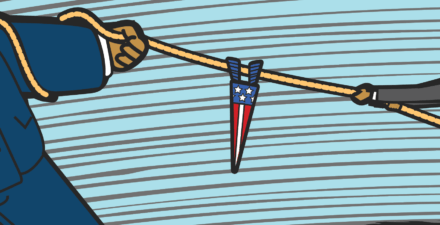A vision for antitrust enforcement for the next administration and Congress
Overview
The incoming administration and the 117th Congress present an important opportunity to rethink fundamental questions surrounding U.S. antitrust laws and their enforcement. Growing market power across the United States disrupts the operation of free and fair markets, and harms consumers, businesses, and workers. Market power indirectly exacerbates inequality and compounds the harms of structural racism. Addressing this problem requires action across the federal government. This report calls for the next administration to seek new antitrust legislation, revitalize antitrust enforcement with a focus on strengthening deterrence, and commit to a “whole government” approach to competition policy.
Key Takeaways
- The U.S. economy is plagued by a problem of excessive market power.
- Antitrust enforcement has failed to prevent this problem. The U.S. Congress has left to the courts the responsibility of interpreting the antitrust laws, and they have increasingly saddled plaintiffs with inappropriate burdens, making it unnecessarily difficult to prove meritorious cases and allowing anticompetitive conduct to escape condemnation.
- Resources for enforcement have been stagnant while the economy has grown. And the antitrust agencies have failed to embrace a vigorous enforcement agenda that optimizes deterrence.
- The presidential transition presents an important opportunity to rethink fundamental questions surrounding the antitrust laws and their enforcement. This report calls for the next administration to undertake three fundamental changes to how it approaches the laws and their enforcement.
- The next administration should devote resources to the passage of new antitrust legislation. While the antitrust laws delegate significant interpretative authority to the courts, Congress has, in the past, stepped in to clarify, to overrule judicial rules that reflect unsound economic theories or unsupported empirical claims, and to enact new laws to deal with new problems. The administration should seize this moment of both bipartisan and unambiguous public support for stronger antitrust enforcement to seek legislative action that would restore the core functions of the antitrust laws.
- To support the enforcement agenda, the next administration should also seek $600 million in increased annual appropriations for the Federal Trade Commission and Antitrust Division for antitrust enforcement.
- The next administration should seek to revitalize antitrust enforcement with a focus on strengthening deterrence. The president must appoint agency leaders who recognize that market power is a serious problem, understand that economic research supports more aggressive enforcement, and above all, believe that business as usual will not suffice. The Antitrust Division and the Federal Trade Commission should commit themselves to an active strategic enforcement agenda that identifies priority areas for enforcement. Merely being reactive in their enforcement decisions is inadequate.
- The next administration should commit itself to a “whole government” approach to competition policy. Numerous agencies currently influence competition in the United States—sometimes implicitly, sometimes explicitly, but rarely coherently. The new administration should establish a White House Competition Office within the National Economic Council whose role is to promote rulemakings that catalyze competition and prevent the passage of entrenching regulation.
Related
Explore the Equitable Growth network of experts around the country and get answers to today's most pressing questions!






